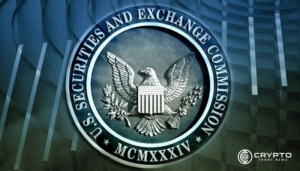- BlackRock increases Bitcoin holdings by $391.8 million, raising its total BTC assets to over $25 billion.
- Institutional interest in Bitcoin continues to grow, with BlackRock’s move potentially driving wider adoption of digital currencies.
- BlackRock’s growing influence in the Bitcoin market could improve liquidity while intensifying regulatory focus on digital assets.
BlackRock has significantly boosted its Bitcoin holdings by adding $391.8 million in new investments on October 16. This addition brings the firm’s total BTC assets to over $25 billion, reinforcing its strong position in the cryptocurrency market. This latest move highlights the growing interest from institutional investors in Bitcoin as traditional finance increasingly embraces digital assets.
Institutional Investors Eye Bitcoin
The timing of BlackRock’s decision to expand its Bitcoin portfolio aligns with a broader shift in how institutional investors view digital currencies. With inflation concerns and economic uncertainties looming, both retail and institutional investors are turning to Bitcoin as an alternative asset. BlackRock’s strategic move signals its belief in Bitcoin’s long-term potential as the cryptocurrency market stabilizes and evolves, gaining legitimacy in mainstream finance.
BlackRock’s Influence on Financial Markets
As the world’s largest asset manager, BlackRock’s growing involvement in Bitcoin is closely monitored by both competitors and other investors. The firm’s significant investment in BTC could encourage other institutional players to adopt digital currencies, further driving widespread acceptance of blockchain technology within the financial sector. BlackRock’s actions may influence market dynamics, pushing more financial institutions toward Bitcoin adoption.
Implications for Market Liquidity and Regulation
With BlackRock increasing its Bitcoin exposure, market liquidity is expected to improve as more institutional participants enter the space. However, the firm’s growing influence could also attract regulatory scrutiny. Governments and regulators worldwide are still grappling with how to approach the decentralized nature of cryptocurrencies. As institutional participation grows, the focus on regulatory frameworks for digital assets will likely intensify.






